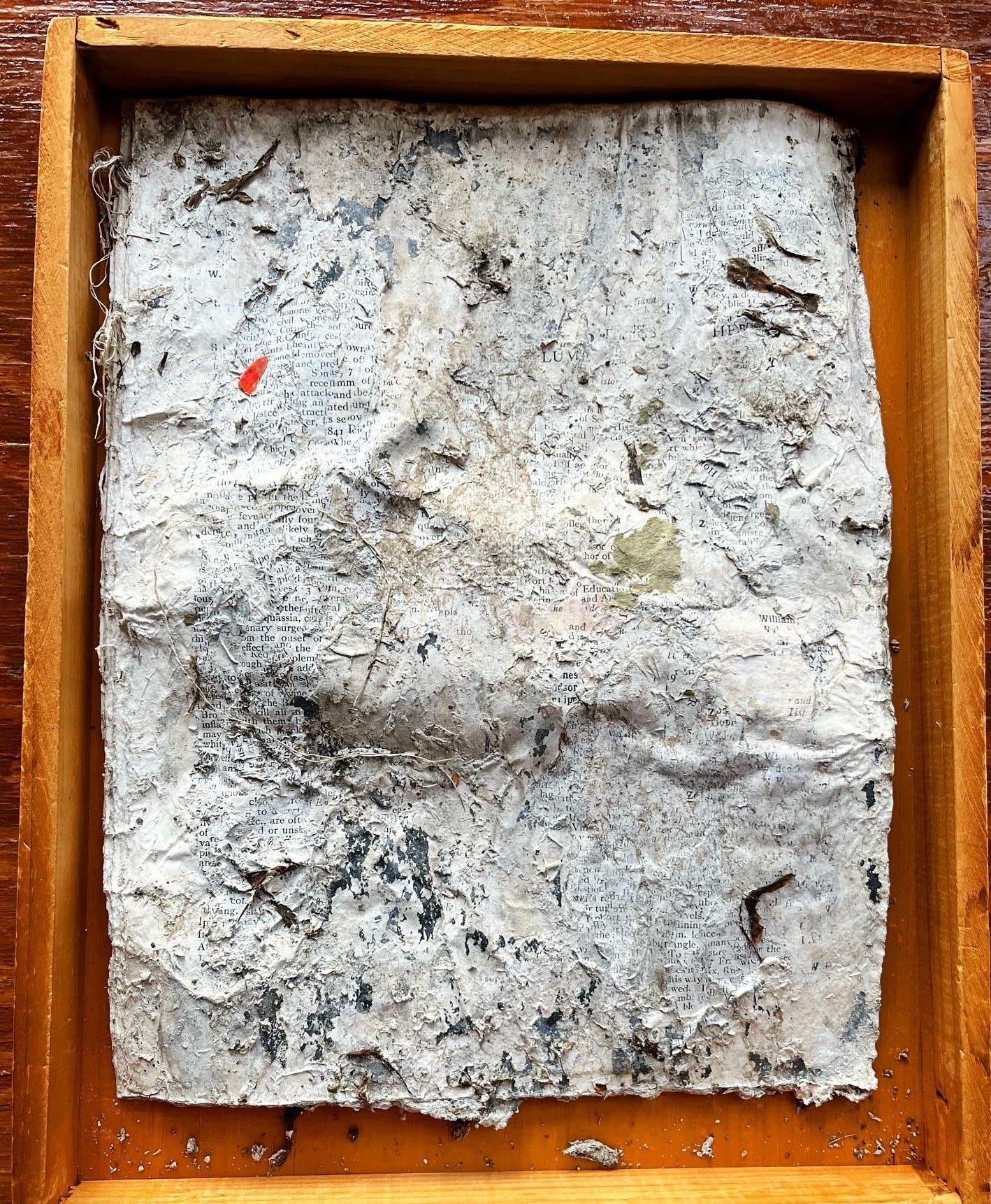
This September I was a visiting writer at The University of Arizona Poetry Center. In addition to giving a reading and visiting classes, I was there in my role as one of the curator’s of a show of poet Mary Ruefle’s treated books, erasure texts, collages and visual work which was being mounted in Tucson in the gallery space of the exquisite Poetry Center library. Weeks before, I sat with Mary in her living room and we bagged and bubble-wrapped the fifty books to ship to Arizona. There in the bright atrium of what is one of the largest poetry libraries in the country (maybe the largest?), those books—and other works by Ruefle—will be on display through February 8, 2025.
Erasure poetry consists of “erasing” an existing text (in Ruefle’s case, her preferred technique is to use correction fluid to cover text) while leaving select parts intact to form a poem. Much of the literary value of the erasure is determined by the original text itself. Ruefle has said in one conversation we had that her preference is for short, didactic works of the 19th century written for children. “If they have the word ‘God’ in them, even better.” Over the years, she has finished perhaps a hundred such texts, though Ruefle says she’s not sure how many she has made.
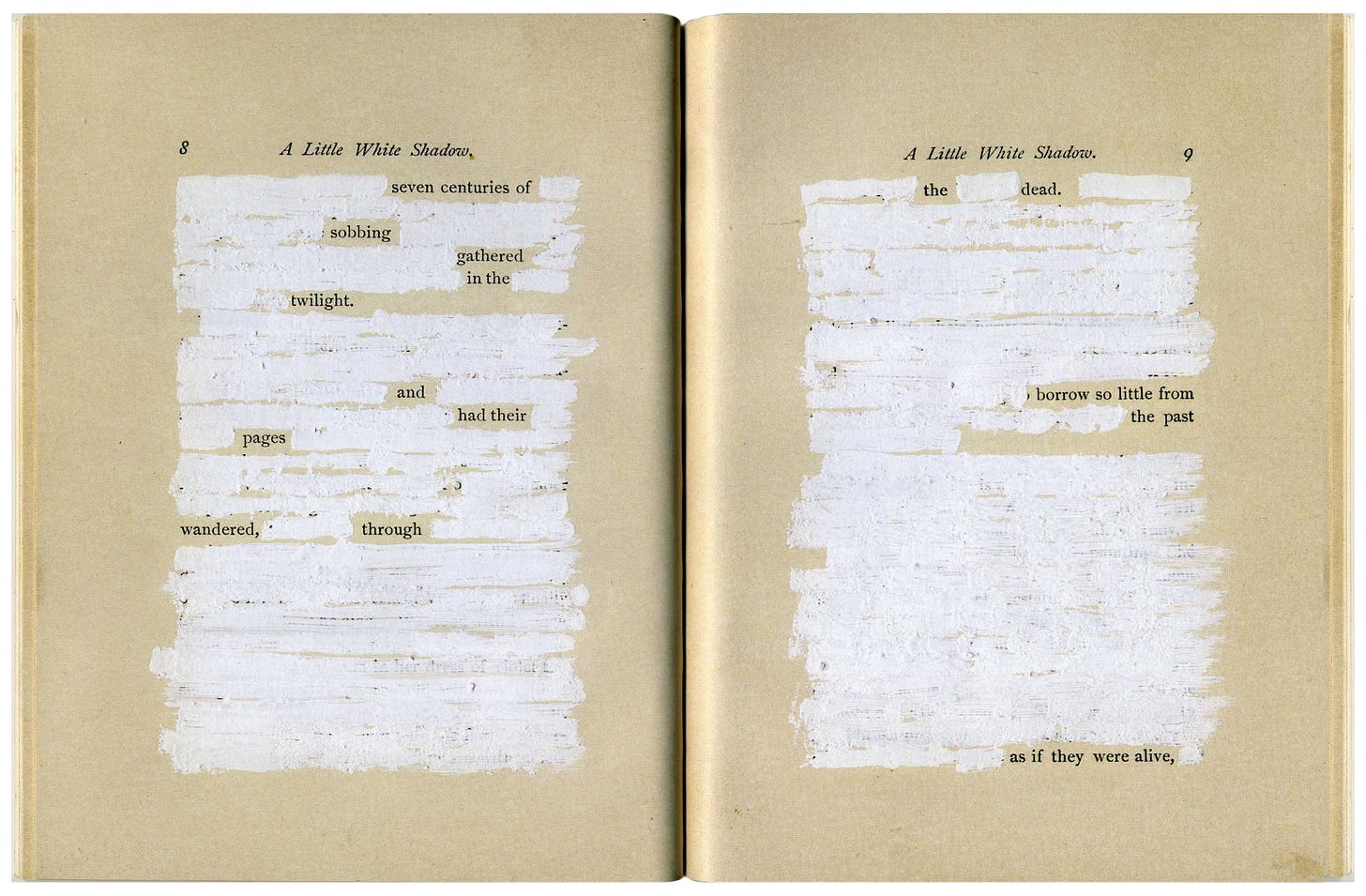
I’ve always found erasures to be a little haunted and a little hostile, intent as they are at covering up or doing away with someone else’s work. One thinks of redacted text blacked out by censors, or of family photos in which someone has been cut out. There is often an archness to these texts, as once serious subjects become ironized or humorous. Ruefle’s erasure poems are often funny, but more often they are poignant, as she discovers the tracks of poetry from within the heavier tread of prose. These poems also refute our notions of originality or inspiration, chosen as they are from the limited lexicon any single page provides. I also love erasures exactly because of the ways they claim something new and surprising from the originating text. Everything we write is written as a result of something that has come before, and Ruefle’s texts are typically extracted from books that have long since fallen from the popular imagination and that have no contemporary readership.

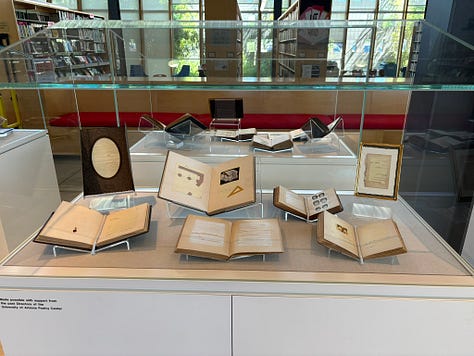
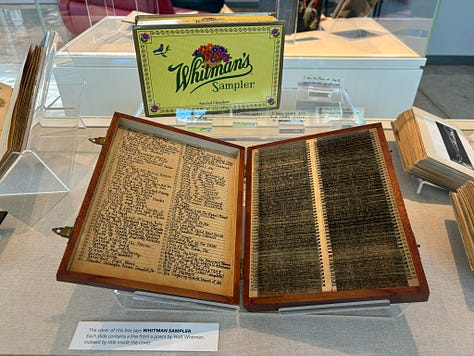
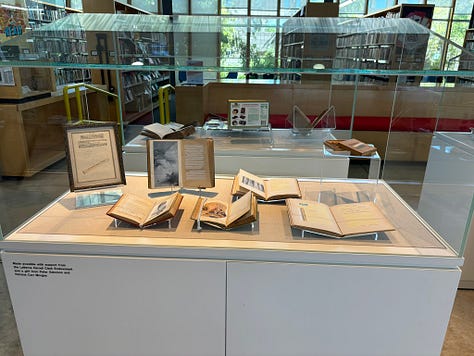
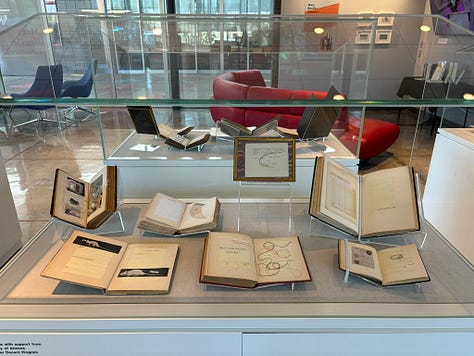
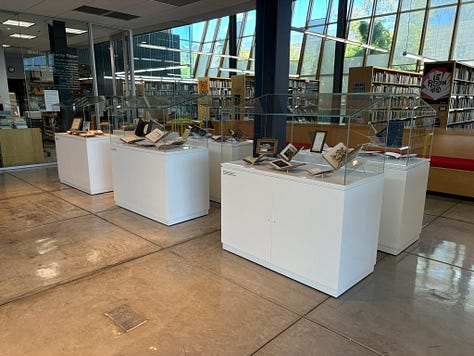
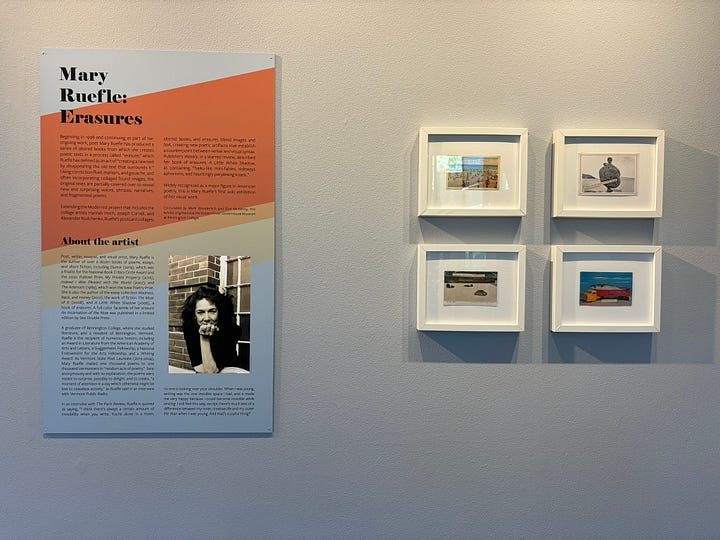
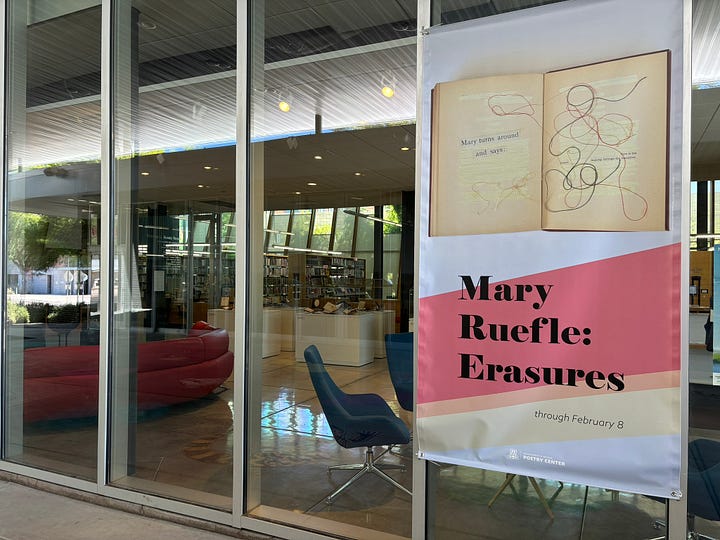
If you get the chance to see her show, write to me and let me know what you think.




